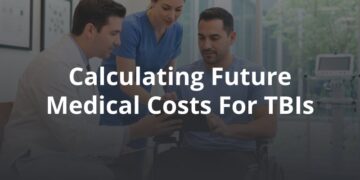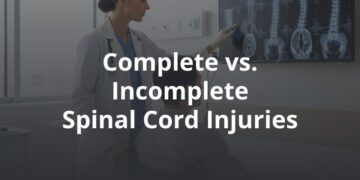If you suffer a physical injury, the effects can be more than just skin-deep. Many injured accident victims experience a range of mental, emotional and psychological impacts, as well. Coping with the aftermath of a personal injury may involve navigating changes to your mental health, lifestyle and identity. Support options are available for individuals dealing with the negative psychological effects of a personal injury. For guidance and a free case consultation, contact the Austin personal injury lawyers at FVF Law Firm.
Common Mental Health Conditions Among Accident Victims
Coping with a mental health condition connected to a personal injury starts with identifying the disorder. It’s important to recognize the signs of something wrong, such as not feeling like yourself or having trouble sleeping, so that you can visit your doctor for a solution.
Three common mental health disorders associated with personal injuries are:
- Post-traumatic stress disorder (PTSD): a psychological condition that can develop after surviving or witnessing a traumatic event, such as a car accident. PTSD can cause symptoms such as flashbacks, nightmares, intrusive memories, avoidance and mood swings.
- Chronic anxiety: a mental health condition that can cause persistent and uncontrollable feelings of stress and nervousness, which can interfere with a patient’s well-being and quality of life. Chronic anxiety can significantly impair a patient’s ability to work and function.
- Depression: a mental health disorder that is characterized by persistent feelings of sadness, hopelessness and a loss of interest in favorite activities. In severe cases, depression can lead to suicidal thoughts or actions.
If you notice any signs of emotional distress as an injured accident victim, talk to your doctor about what you’re experiencing. It is critical to speak up so that you can get an accurate diagnosis and the right medical care to manage your symptoms.
Confide in Friends and Family Members
Suffering in silence with the psychological impacts of a personal injury will not help the issue become more manageable or make it disappear. The only way to effectively manage your condition is by facing it head-on.
Start by talking to trusted friends and family members about what you’re feeling. It can be challenging to reach out for help, but taking this first step is the key to the rest of your healing journey.
Get Professional Support
Next, get help from qualified professionals. You should prioritize your mental health the same way you would your physical health. Schedule a session with a psychologist, therapist or psychiatrist near you who specializes in trauma-induced mental health disorders to speak about what you’re feeling.
If you don’t feel comfortable getting help in person, consider teletherapy options or a “warmline,” which is an opportunity to talk to someone about your mental health in a nonemergency situation. There are also support groups for injured accident victims, where you can connect with people who are going through similar hardships.
Know When to See a Doctor
Some psychological conditions that develop in injured accident victims require more aggressive forms of treatment, such as prescription medications. If therapy or counseling alone is not helping you regain your mental or emotional health, talk to your doctor about other treatment options. A prescription drug for severe anxiety or depression, for example, may be necessary to help you manage your symptoms and feel more like yourself again.
Learn How to Self-Regulate
Help from others can be essential while learning how to cope with a mental health condition from a personal injury. However, it is equally important to learn how to help yourself. One strategy is self-regulation, or the ability to manage your physiological responses to triggers (also known as stressors).
Start by identifying your triggers, which may be certain places, situations or people that generate a strong negative emotion in you. This can help you anticipate when you might have an adverse psychological response so you can be better prepared. When faced with a trigger, focus on noticing and managing any negative mental and physical reactions.
Control your thoughts, emotions and behaviors using techniques such as deep-breathing exercises. Use positive self-talk to reframe negative thoughts. This can help you manage intense emotions and minimize the effects that a trigger has on your mental health and well-being.
Practice Relaxing
Traumatic events such as getting injured can lead to psychological changes such as hypervigilance and hyperarousal, or constantly feeling on edge. This can cause the victim to have difficulty relaxing and sleeping. It can also lead to an exaggerated startle response, irritability, outbursts and trouble concentrating.
You can manage these symptoms by practicing relaxation strategies. Meditation, reflection and mindfulness exercises can help you cultivate an awareness of your thoughts, emotions and physical sensations so that you can respond to them. Try relaxation solutions such as yoga, hiking, spending time in nature, journaling and the creative arts.
Start a Self-Care Routine
Self-care goes hand-in-hand with mental health. Create a self-care routine that prioritizes your physical and emotional well-being. It can include:
- Regular mealtimes with healthy food
- Exercise and physical activity
- Yoga or stretching
- Relaxation activities
- Adequate sleep
- Creative self-expression
- Journaling or self-reflection
- Social connections
- Digital detox
- Steam rooms or saunas
- Massages
Good lifestyle habits can help you maintain a balance that allows you to cope with the effects of a personal injury in a healthy way rather than turning to unhealthy coping mechanisms like substance abuse.
Mental Health Resources for Personal Injury Victims in Texas
If you or a loved one is exhibiting signs of a mental health disorder after suffering from a personal injury in Texas, you are not alone. This is a normal reaction to sustaining a serious physical injury or living through a traumatic event. You don’t have to live with chronic fear, anxiety or depression. Help is available.
The following are a few mental health resources in Texas:
- 211: connects people to state and local Health and Human Services resources
- Behavioral health support in the community
- Crisis Text Line: Text TX to 741741 24/7
- Mental Health Texas
- Texas Mental Health Resources
- Free (state-sponsored) therapy in Texas
Don’t wait – talk to your doctor about your mental health struggles after a harmful accident in Texas. Your doctor may recommend counseling, cognitive behavioral therapy, prescription drugs, rehabilitation services and other treatments to help you cope with the psychological effects of your injury.
Seek Justice for Your Personal Injury
As an injured victim in Texas, you may qualify for compensation from the person or party at fault for causing your accident. This could include financial reimbursement to cover the costs of your therapy, counseling and medication needed to cope with the psychological impact of the injury. Consult with an Austin injury lawyer from FVF Law to learn more about your case and understand your legal rights and options. We have over 100 years of combined legal service. Contact us online today for a free no-obligation consultation.







